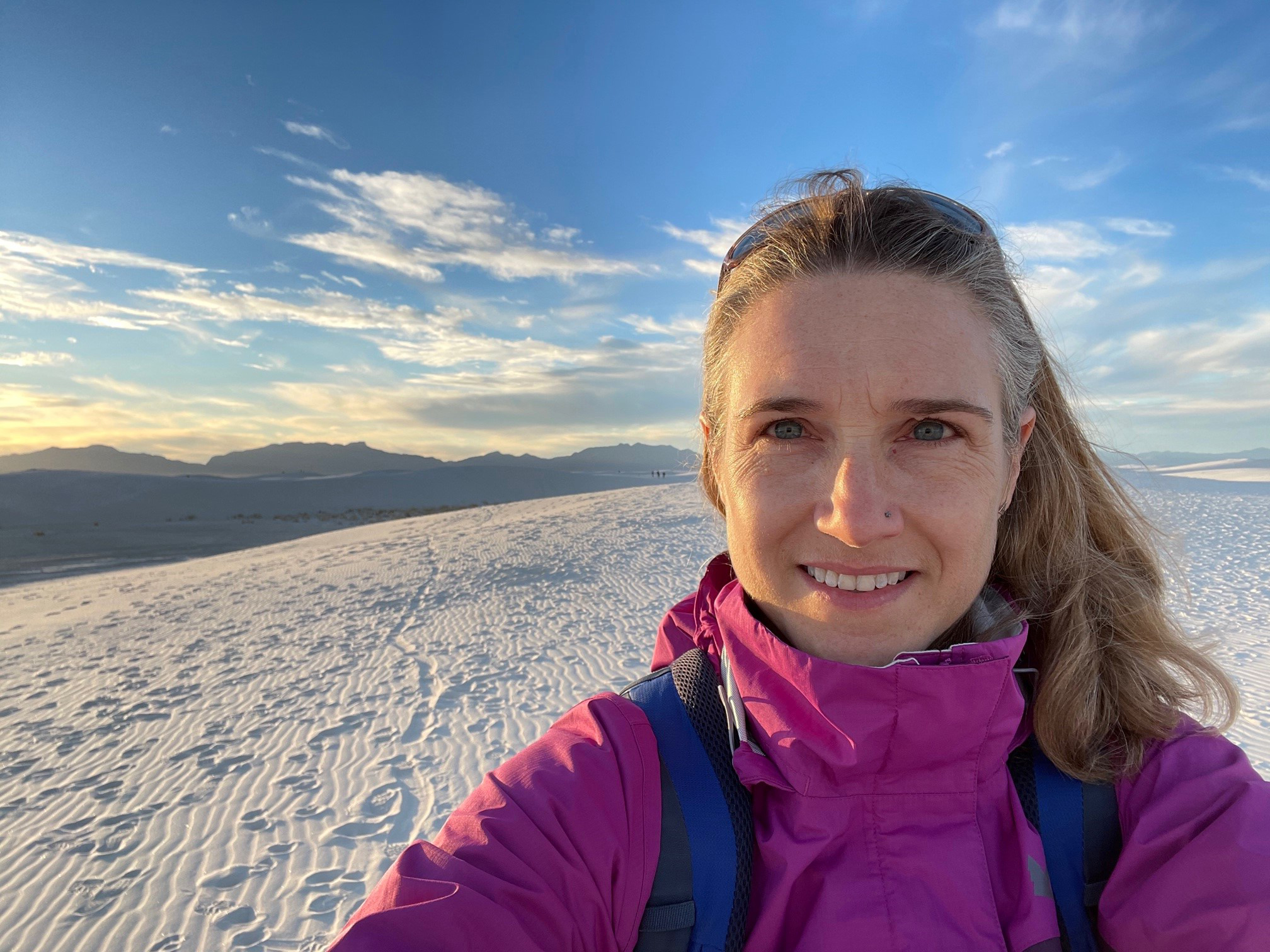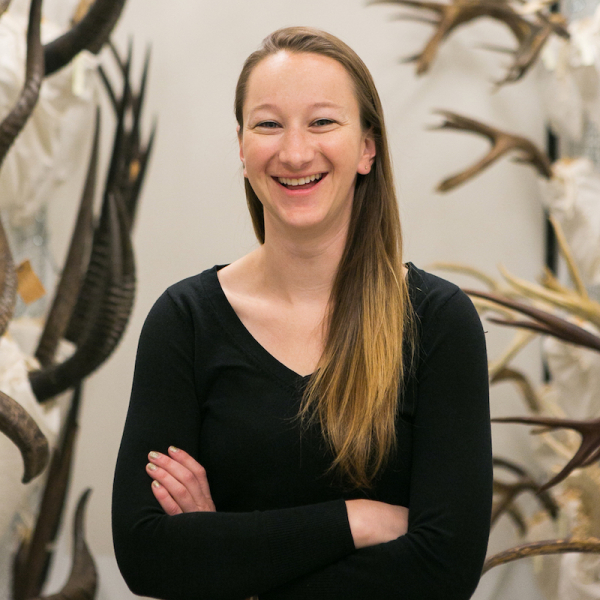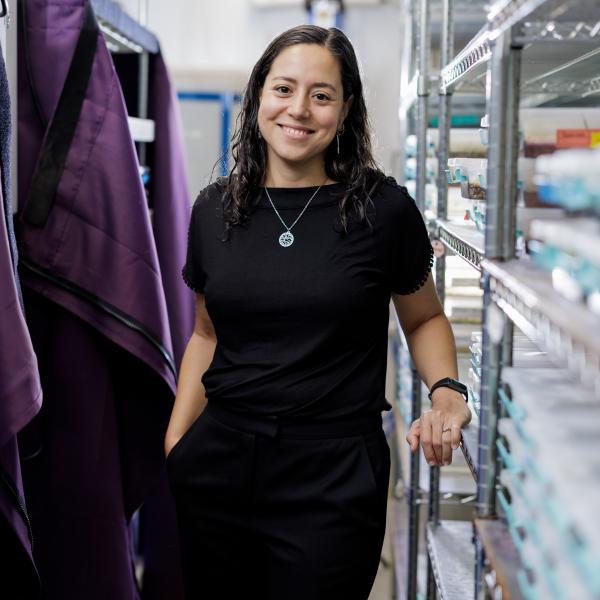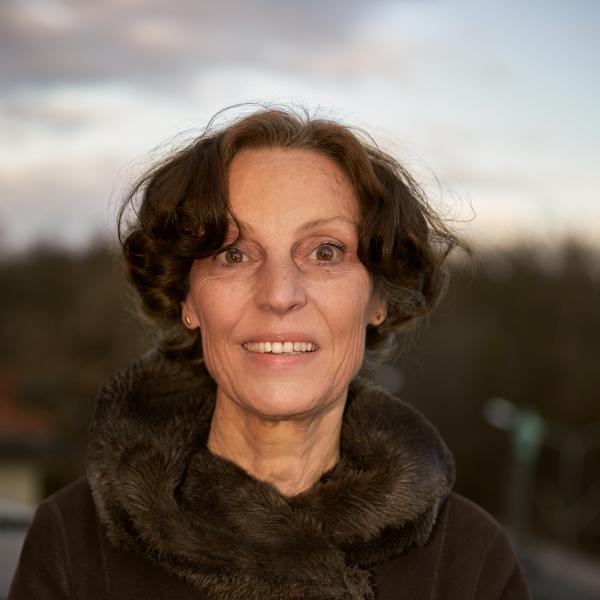Q&A with Assistant Director of Environmental Studies Eleanor Pardini

Q: Where are you from originally?
A: My dad was in the Air Force so I moved around a lot when I was young. I was born in Italy and lived in California and on an airbase in Germany before we moved to Virginia. We stopped moving around when my dad transferred to the Pentagon so I often say I’m mostly from Virginia. I went to school there before I did my grad work at University of Georgia.
Q: Was there an early life experience that sparked your interest in environmental science?
A: When we were young we spent a lot of time with my grandparents in Dorset, England, where my mom is from. Especially when we were stationed in Germany, it was affordable and logistically easy to visit, and we often spent most of the summer there. My grandfather and mom both keep loads of books for identifying plants, rocks, and animals around the house. They always took us outside…for country walks, fossil hunting on the Jurassic Coast, scrambling on cliffsides and beaches. We were always stopping to look at plants and flowers. I think these early experiences helped instill an appreciation of plants and ecology, and a love of knowing the names of plants. An important formative experience along my path was doing a study abroad semester in Monteverde, Costa Rica immersed in tropical rain forest ecology.
Q: Can you tell us about your educational background?
A: I was a double major in Biology and English Literature at the College of William and Mary. I knew I wanted to pursue science but I loved critical literature analysis, and especially loved medieval, 20th century, and post-modern literature, so that program of study was a gift to myself. I earned a PhD in plant biology from University of Georgia and did a postdoc in plant ecology here at Washington University (seems like many moons ago!).
Q: Can you describe your research at WashU?
A: I study population ecology of rare plants and ecosystem restoration in coastal dunes. My field work is centered on a federally endangered lupine species, Tidestrom’s lupine, at Point Reyes National Seashore, just north of San Francisco, California. In this ecosystem, plants face threats like seed predation and hybridization as well as altered dynamics due to the presence of introduced plants that overstabilize the dunes. Plants and animals in these ecosystems are adapted to a dynamic environment with lots of wind, water, and sand movement, so restoration usually involves removing exotic plants and restoring dynamic geomorphological processes (like lots of sand movement).
My collaborator and I have been collecting a unique long-term dataset on this species since 2005. We collect basic demographic data – survival, growth, fertility, and seed predation level – on individual plants and use mathematical population models to understand population dynamics and if populations are projected to thrive or decline. Our dataset now includes hotter and colder years, wetter and drier years, several El Nino events, and years before and after restoration events, so it allows us to address questions about how the species responds to changing climate or restoration activities.
Q: I see that you were elected as a Maplewood City Councilperson a few years ago. What led you to run for office?
A: I spend a lot of time thinking about our relationships with each other, as people, and our relationship with our environment. I am passionate about systems change, and internal institutional transformation, and my community organizing and transformation values end up creeping in to most things I do, whether it’s my work inside my sphere of influence at WashU or my neighborhood community at home. Public service and civic engagement were built into my childhood and how I grew up. My mom was an early literacy teacher in public schools and my dad was a career officer in the Air Force. Family life for us was steeped in close-knit community and service to community and country, so it’s a little bit built in.
After I moved to Maplewood I started learning more about our municipality and I started getting involved in community organizing around justice and equity. I began to learn that local government actually has a much bigger influence on our daily lives than we realize, and yet the status quo is very, very deeply entrenched, for a lot of reasons. It’s sort of how it’s designed. Newer progressives are asking for local governments to be transparent, accountable, and equitable. It’s been exciting to find neighbors with shared interests. We have a wildly engaged group of residents in Maplewood! Serving has been rewarding and also often tiring. I’ve managed my time and responsibilities by cutting back on the number of things I am engaged in. I am very choosy and intentional about what I say yes to. I say no to a LOT of things. I also make sure to do things that are restorative and rejuvenating, because radical joy and self-love are part of what makes justice and transformation work sustainable – for me that means time spent in relationship with friends and chosen family, time with my children, and time outdoors having fun in nature.
Read more about Eleanor Pardini’s thoughts on education HERE and learn about her research HERE.




